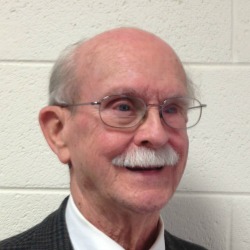Recently we have been looking into several aspects of communication breakdown that is the Number One reason people come to New Hope for instruction and counseling.
What do we, as a counseling ministry, when two people who once said, “I do,” now say: I don’t, I can’t or I won’t?
Before embarking on the mechanics of the solution two parties at odds with each other need to examine their commitment to healing the here-to-fore unresolved issue(s).
To help them arrive at their individual level of commitment to their marriage we give them a piece of paper on which is written four words in this configuration
CAN CAN’T
WILL WON’T
Before they have a chance to respond they are told we can help them with three out of the four.
If either one or both say they won’t it is not feasible to continue. Counseling is of no effect unless people ask for it.
This may seem an abrupt measure, but if only one says they won’t, during the silence in time that seems to always follow such a declaration, most often statement is recanted and the session continues. Yes, the person saying they won’t loses some face, but most marriages make it beyond that point. The one who did not say they won’t is happy that the marriage has a chance of being repaired.
From a counseling perspective, the solution is simple – take them back to a place where they can say, “I do.” That is, help them re-establish their common interests that brought them together in the beginning.
Also help them find ways to stay in that zone while rebuilding the dating relationship in their marriage and rebuilding any damaged trust factors.
Early on it was established the best way to defeat any enemy was to make a friend of them.
Next Time: Marriage; Learning and Doing the Will of God
 Rev. Thomas (Tom) C. Lacy, Advisory Board Member of the Virginia Christian Alliance and Founder and Director, of New Hope Counseling Service.
Rev. Thomas (Tom) C. Lacy, Advisory Board Member of the Virginia Christian Alliance and Founder and Director, of New Hope Counseling Service.




